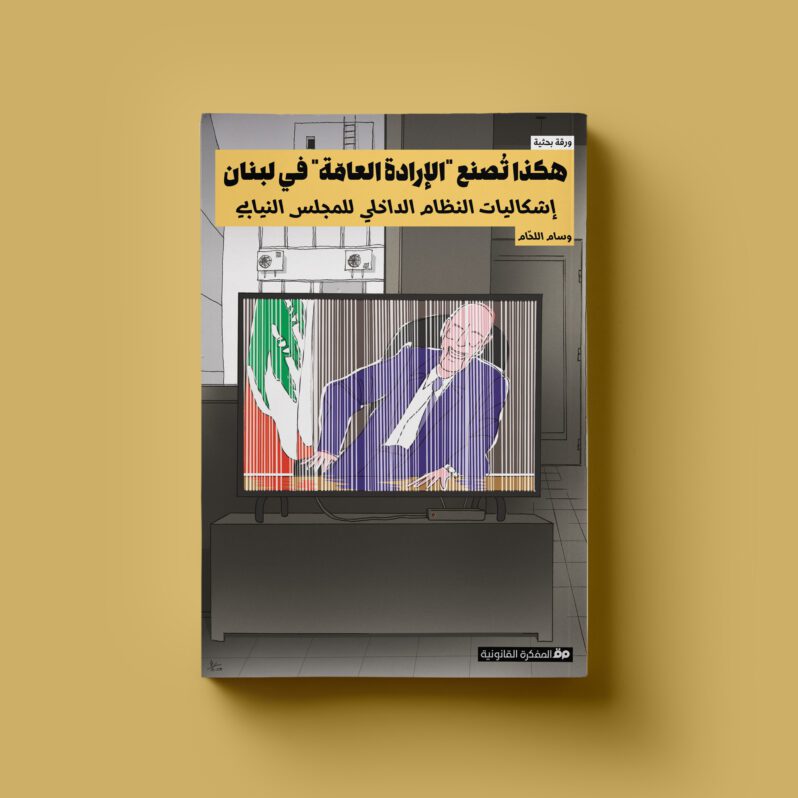Syrian Refugee Children Born in Lebanon Face Threat of Statelessness

One of the biggest challenges posed by the Syrian crisis is the issue of stateless children born in host countries. Further escalation of the crisis is likely to lead to an increase in the number of persons at risk of statelessness on a global scale. According to the UN High Commissioner for Refugees (UNHCR), an estimated 36,900 Syrian refugees were born in Lebanon between 2011 and September 2014. Close to 70% of these births were not registered.[1] These children with no birth certificates are at risk of statelessness. Unless the Lebanese and Syrian governments take special exceptional measures, it would be difficult to prove their place of birth, their parents identity, and thus, their Syrian nationality.
In Lebanon, the administrative procedures of birth registration for foreigners include the following three stages:
Obtaining a birth certificate from the midwife or obstetrician who delivered the baby. In the latter case, the certificate has to be notarized by the hospital where the birth took place;
Preparing a birth certificate authenticated by the mayor where the birth took place; and
Declaring the birth at the competent civil status division of the governorate where the birth took place. It is worth noting that “birth registration” for foreigners born in Lebanon is the process of registering the birth event itself, rather than creating a birth certificate, since Lebanese authorities do not keep civil status registers and records for foreigners. The Lebanese state has failed to articulate a clear policy or an exceptional mechanism to deal with the new situation [precipitated by the Syrian Crisis], except for some temporary and short-term measures.
Each of these stages bears practical and administrative obstacles for Syrian refugees, which may lead to unregistered births, and consequently, the risk of statelessness. These obstacles are as follows:
Parents Have No Identity Documentation
All stages of birth registration in Lebanon require presenting documents to prove the identity of the parents. This presents a significant obstacle to many Syrian refugees who -as a result of the war in Syria- were forced to seek refuge in Lebanon without their identification documents. Forty per cent of births among Syrian refugees in Lebanon have not been registered because their parents did not have the required identity documents.[2]
Parents Have No Legal Residence in Lebanon
In order to register the birth of their children in Lebanon, parents are required to have valid residency status. This poses the biggest problem for registration purposes. The Ministry of Interior circulars stress that a valid residence in Lebanon or a valid entry permit to Lebanon is required. Syrian refugees are not exempt. This includes those who entered Lebanon through informal crossings, either because they had to flee without the documentation required for legal entry or because of the risk of arrest on the Syrian borders.The children of these refugees are thus rendered victims [of circumstance and state regulation]. The same applies to refugees who entered Lebanon illegally without being able to renew their residency for a variety of reasons. The most significant of those being the high renewal fee (LL300,000 [US$199] per person). In addition, there are cases when birth registration of Syrian children is not possible due to the absence of one of the parents and the unavailability of their identity documents, or due to the separation of children from their families because of circumstances caused by the Syrian crisis.
No Proof of Marriage
Lebanese authorities also require parents to present documents proving their marriage. Valid documents include a marriage certificate, a family book, or a family record issued no earlier than six months and certified by the Lebanese and Syrian foreign ministries. Lebanese authorities have relaxed these procedures by instructing the civil status divisions to accept the family book as a sufficient identity documentation, if applicants were unable to provide a family record and an identical copy of the marriage certificate.[3] This would facilitate the procedure of birth registration for many Syrian refugees. The family book is considered the basic document for related administrative transactions in Syria. As a result, Syrian citizens hold on to this document in particular to indicate their marital status.
No Birth Certificate From a Doctor or a Midwife
It is common among Syrian refugees -especially those not registered with UNHCR which covers over 75% of deliveries- to give birth at home without any medical assistance for various reasons. Hospitals and maternity centres tend to be far from where the refugees are located. The fees of physicians and midwives can also be prohibitive. Giving unassisted birth at home precludes parents from getting a birth certificate authenticated by the doctor or midwife. Moreover, in some cases, the hospital may refrain from issuing a birth certificate if the parents did not pay the full hospital fees, especially if the birth procedure was complex. The Ministry of Health has set up a hotline (1214) for parents to call in order to take action against the hospital, including obligating it to issue a certificate.
No Birth Certificate Authenticated by the Mayor
In the absence of a birth certificate, it may not be possible for the mayor to issue one and authenticate it. The Mayors and Optional Councils Law of 1947 gives the mayor the right to authenticate the birth certificate based on his “personal knowledge”, and in the absence of a physician. The application of this regulation, however, causes a lot of confusion at the civil status divisions. The authenticity of these documents may be disputed and often requires an administrative investigation. Syrian babies are affected to a greater extent since the element of “personal knowledge” between the parents and the mayor is likely to be absent. Back in 1988, the General Directorate of Civil Status issued a circular stipulating that in order for the birth certificate to be accepted by the personal status officer, it must be signed by the physician or midwife.
It seems that civil status divisions tend to reject birth registration documents of Syrian refugees lacking medical authentication. If the mayor arbitrarily refrains from preparing a birth certificate, the refugees have no legal recourse to force him to do so. Moreover, some refugees may not afford fees charged by the mayor. Fees, which are not set, range from nil to an arbitrary amount requested by the mayor.
The Need to Declare the Birth Within a Year
Lebanese law stipulates that every birth in Lebanon should be declared at the civil divisions within a year from its occurrence. After the year period elapses, it is not possible to record the birth except after obtaining a precatory court decision by a single civil judge.[4] Registration procedures followed in Syria are entirely different and the high cost of judicial procedures exceeds the capacity of the majority of Syrian refugees. Furthermore, there is a divergence in the jurisprudence over the possibility of accepting record claims for non-Lebanese, which may put them at a higher risk of statelessness if their births are not recorded in the state register within the one year time limit.
Lebanese authorities have taken steps to facilitate the declaration of a child’s birth. The one year limit for administrative registration is suspended if the personal status officer provides an incoming number upon declaration, then refers it to the competent civil status division. This buys time for Syrian parents to provide the necessary documentation needed for the registration of the birth, provided the transaction is completed at a later date.
The category of Syrian children who were born in Syria to parents who had to flee before processing their registration with the relevant authorities at home also faces obstacles of registration in Lebanon. In this case, there is no obligation on the part of the Lebanese state to register these births. The state's responsibility is limited to recording foreigners’ civil status events which occur on its territory. This category of refugees also faces the risk of statelessness, if their record of transactions cannot be completed in Syria at a later date.
This article is an edited translation from Arabic.
Berna Habib is a researcher at Frontiers Ruwad Association.
__________
[1] See: Updated UNHCR factsheet about statelessness, September 2014.
[2] Ibid.
[3] Ministry of Interior and Municipal Affairs, the General Directorate of Civil Status, Memo No. 10/2, relating to the need to simplify procedures on the implementation of birth certificates of Syrians in Lebanon, May 20, 2014.
[4] Article 11 and 12 of the Law on the Registration of Civil Status of 1951.



